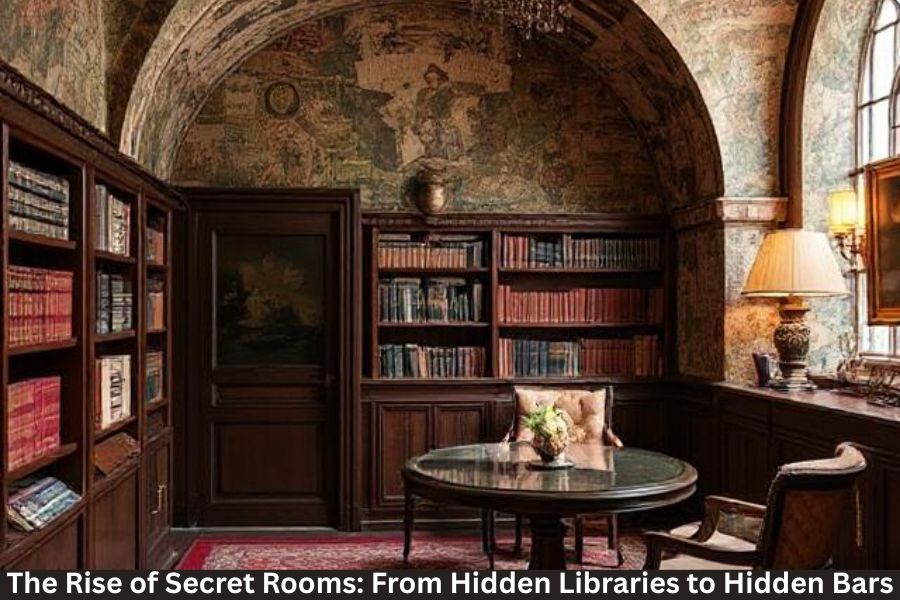Have you ever noticed how a certain scent can sometimes change your mood instantly or make a room feel welcoming? The power of scent is hard to deny. The whole art and science of healing the mind and body through fragrances can really go far into transforming your home environment. Be it for easing off after a hectic day, spurring on some concentration, or simply to set a warm and cozy ambience, we have something very simple yet powerful in plain aromatherapy.
Understanding Aromatherapy
What is Aromatherapy?
Simply put, aromatherapy is the use of natural plant extracts, particularly essential oils, for improving in health-physical, emotional, or even spiritual-well-being. So it’s more than just making something smell nice in the air. Aromatherapy can still impact your brain and mood along with your health.
How Scents Affect Mind and Mood
The olfactory system is affected by scents, although the system links theoretically via the limbic region of the brain that controls emotions and memory aspects. Lavender instills calmness and reduces stress while peppermint promotes alertness, and citrus fragrances are able to lift your spirit.
Essential Oils vs Synthetic Fragrances
While some synthetic scents may mask an odor, essential oils provide a therapeutic benefit. The oils’ chemical properties interact with your nervous system, thereby relaxing, invigorating, or even emotionally healing you.
Picking Aromas for Your Use
Relaxation and Stress Relief
Lavender, chamomile, and sandalwood might be great choices for bedrooms and meditation areas where your goal is to relax and get a good night’s sleep.
Energizing and Focus-Boosting Scents
Peppermint, rosemary, or citrus oils stimulate alertness and allow better concentration; a fine choice to consider for the office and kitchen.
Romantic and Comforting Aromas
Vanilla, rose, and ylang-ylang work best for warmth, intimacy, and comfort vibes for living areas and bedrooms.
Seasonal and Festive Scents
Cinnamon, pine, and clove evoke memories of holidays and seasonal comfort, just right for the living room or an entryway.
Ways to Use Aromatherapy
Diffusers and Humidifiers
These ultrasonic diffusers disperse an even mist of essential oil aroma throughout a room, soft and subtle in scent.
Candles and Wax Melts
Candles slow-release scent as they burn, providing ambiance to accompany the fragrance.
Incense Sticks and Cones
Incense is best when considered in meditation practices ad scheduled fragrance bursts to revitalize any area.
Room Sprays and Linen Spritzers
A few spritzes will quickly refresh any area or fabric and make for a perfect last-minute scent upgrade.
Ways to Incorporate Aromatherapy into Your Life
Morning Routines
Start your day with invigorating aromas: grapefruit or lemon to refresh your senses and fuel your mind.
Evening Relaxation
Calming aromas such as lavender and chamomile are there for help loosening up before a restorative sleep.
Work and Productivity Enhancement
Peppermint, rosemary, and eucalyptus enhance your focus and mental clarity during a work session.
Setting Up Aromatherapy Based on Interior Spaces
Living Room Aromas
Go for aromas that help better the ambiance: citrus or vanilla for a welcoming and relaxing atmosphere for guests and family.
Bedroom Aromas
Lavender, chamomile, and sandalwood increase maximum relaxation and deep sleep.
Office/Workspace Aroma
Peppermint, rosemary, and lemon oils provide concentration, creativity, and productivity.
Bathroom/Spa Aroma
Eucalyptus, tea tree, and citrus oils give a fresh and invigorating experience while keeping it clean.
Aromatherapy DIY
Bottled Diffuser Formula
Blend complementary essential oils, such as lavender with bergamot for relaxation or lemon with rosemary for alertness.
Scented Candles for Home
Create custom candles by melting soy wax and adding essential oils for an economical fragrant solution.
DIY Bath and Linen Sprays
Combine distilled water and essential oils in a spray bottle for a quick linen refresh or relaxing bath.
Health and Safety Considerations
Dilution and Application
Essential oils should always be diluted in a carrier oil or in water before application; otherwise, they may cause irritation or respiratory discomfort.
Allergies and Sensitivities
Always try the oils on a small bit of skin initially; avoid those scents triggering allergic responses amongst your family members.
Safe Storage for Essential Oils
To keep them potent and prevent degradation, store oils in dark, cool containers.
A Little Science of Aromatherapy
Stress Alleviation and Relaxation
Research has shown lavender, bergamot, and chamomile decrease cortisol levels and bring about calm.
Cognitive Benefits and Focus
Peppermint and Rosemary increase alertness, memory, and overall cognition.
Psychological and Emotional Effects
Aroma reduce anxiety and uplift people’s moods, giving them comfort and a sense of emotional well-being.
Budget Friendly Aromatherapy Tips
Inexpensive Essential Oils
Buy essential oils in bulk for saving or buy only the highest quality oils from reputable brands.
Simple Home-Made Diffusers
Reed diffusers made using jars, reeds, or other small containers are inexpensive yet work perfectly well.
Reusing Household Materials
Use cotton balls, empty jars, or small bottles as spreading agents in your home.
Advanced Techniques in Aromatherapy
Layering Scents for Complexity
These layers comprise of top, middle, and base notes strategically blended together to build up a multi-dimensional fragrance experience.
Blending top, middle, and base notes
Top Notes: Citrus/Peppermint / Middle Notes: Lavender/Geranium / Base Notes: Sandalwood/Vanilla – These will create a good balanced aroma.
Seasonal/rotating Scents
Each season brings mood-changing scents to match with interior décor as well.
Conclusion
Aromatherapy is an anchor in which to transform your interior and make life comfortable and celebratory. So, choosing the right aromas, depending on diffusion concept and ways we evaluate the interchanging aromatherapy in the day’s living, is one way to build a home caring for one’s mind, body, and emotions.
FAQs
1. Which essential oils are best for relaxation?
Top choices are lavender, chamomile, and sandalwood.
2. How can I make my home smell naturally good?
Use diffusers, candles, incense, or a DIY spray with essential oils.
3. Can aromatherapy improve focus at work?
Yes! Peppermint, rosemary, and lemon oils boost concentration and mental clarity.
4. Are synthetic fragrances as effective as essential oils?
No. Essential oils carry therapeutic compounds that synthetic scents generally lack.
5. Can you explain how to combine multiple scents effectively?
This television-setting tends to layer top, middle, and base notes to create a scent that’s complex and evolving.




